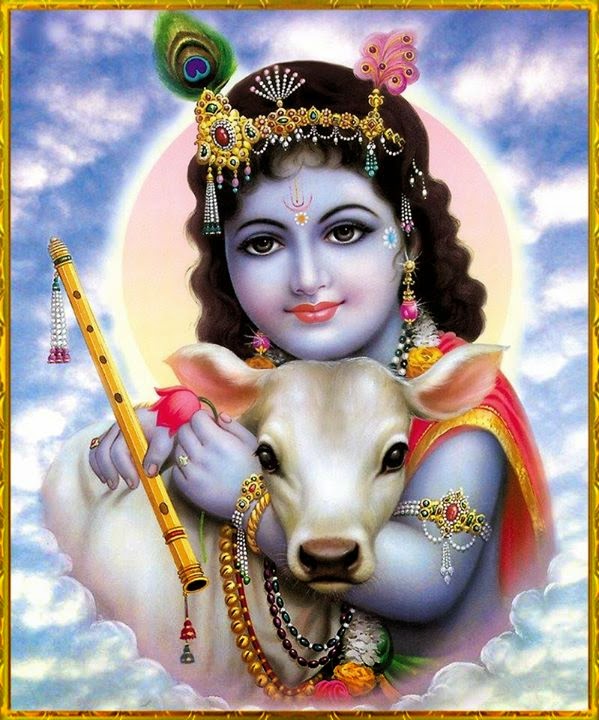Srimad Bhagavatham : 6.2.11.
Skandham-6.
Chapter-2.
Slokam-11.
na nishkrtair uditair brahma-vadibhis
tatha visuddhyaty aghavan vratadibhih
yatha harer nama-padair udahrtais
tad uttamasloka-gunopalambhakam.
na = not;
nishkrtaih = by the processes of atonement;
uditaih = prescribed;
brahma-vadibhih = by learned scholars such as Manu;
tatha = to that extent;
visuddhyati = becomes purified;
agha-van = a sinful man;
vrata-adibhih = by observing the vows and regulative principles;
yatha = as;
hareh = of Lord Hari;
nama-padaih = by the syllables of the holy name;
udahrtaih = chanted;
tat = that;
uttamasloka = of the Supreme Personality of Godhead;
guna = of the transcendental qualities;
upalambhakam = reminding one.
By following the Vedic ritualistic ceremonies or undergoing atonement, sinful men do not become as purified as by chanting once the holy name of Lord Hari. Although ritualistic atonement may free one from sinful reactions, it does not awaken devotional service, unlike the chanting of the Lord’s names, which reminds one of the Lord’s fame, qualities, attributes, pastimes and paraphernalia.
The chanting of the holy name of the Lord has special significance that distinguishes it from the Vedic ritualistic ceremonies of atonement for severe, more severe or most severe sinful actions. There are twenty types of religious scriptures called dharma-sastras, beginning with the Manu-samhita and parasara-samhita, but herein it is stressed that although one may become free from the reactions of the most sinful activities by following the religious principles of these scriptures, this cannot promote a sinful man to the stage of loving service to the Lord.
On the other hand, chanting the holy name of the Lord even once not only frees one immediately from the reactions of the greatest sins, but also raises one to the platform of rendering loving service to the Supreme Personality of Godhead, who is described as uttamasloka because He is famous for His glorious activities. Thus one serves the Lord by remembering His form, His attributes and pastimes.
This is all possible simply by chanting the Lord’s holy name because of the Lord’s omnipotence. What cannot be achieved through the performance of Vedic rituals can be easily achieved through the chanting of the Lord’s holy name. To chant the holy name and dance in ecstasy is so easy and sublime that one can achieve all the benefits of spiritual life simply by following this process.
To be continued ...

.jpg)


Comments
Post a Comment